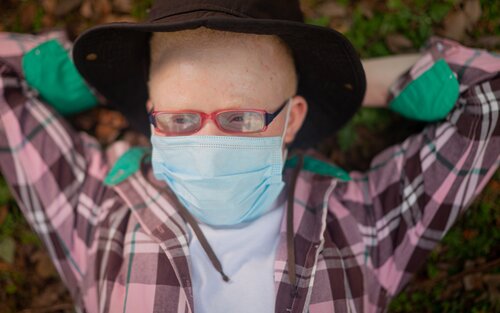Why Albinism Is a Disability
In the course of my disability advocacy, I have often had people either ask me to help them understand why Albinism is a disability, or actually argue with me that it is not a disability. They make the point that albinism is not something they would consider a disability of the human body.

Woman with albinism
Yes, persons with Albinism are usually as healthy as everyone else; with growth and development occurring as normal, but can be classified as people with disability because of the health challenges associated with the condition.
Very notable among such challenges is visual impairment. Most persons with albinism are shortsighted. Furthermore, the lack or low amount of melanin in their system makes them susceptible to skin cancer, if the skin is overly exposed to the sun. This results in them living a very controlled lifestyle, as they must be careful which time of the day is appropriate for them to go out or must wear protective clothing if they want to walk through the sun. The condition also makes them very selective of which job or vocation to go into, since they can't have the normal life like everyone else. Given these inhibitions posed on one's life it is clear that albinism is a disability; disability is defined as any impairment of the body or mind that limits them in certain actvities and makes it more difficult to interact with the world around them.
Beside the health challenges that come with the condition, societal factors also contibute to the challenges of albinism. They are stigmatized, discriminated against and marginalized to the extent that some communities have even banished them. Some communities reject persons with the condition because according to them, their gods abhor the presence of persons with albinism.
In light of the numerous superstitious beliefs about their condition, it is almost impossible for persons with albinism to marry and find jobs. They are also denied many other privileges that would enable them to enjoy happy and normal lives, but yet paradoxically there seems to be resistance to accepting the condition as a disability.
If persons with disabilites could get the support systems that enable them to live normal lives where they are accepted and included in society, they may not even consider themselves disabled, in the strict sense of the word. There are examples of persons with very severe or visible disabilities who do not consider themselves persons with disabilities, because they had the support of families and other structures in place which allow them live a wholesome and fulfiling life.
The implication is that, if the environment is not adequately structured, if the support systems are not there, even people without any severe physical or mental impairment, also feel disabled in their daily life.
